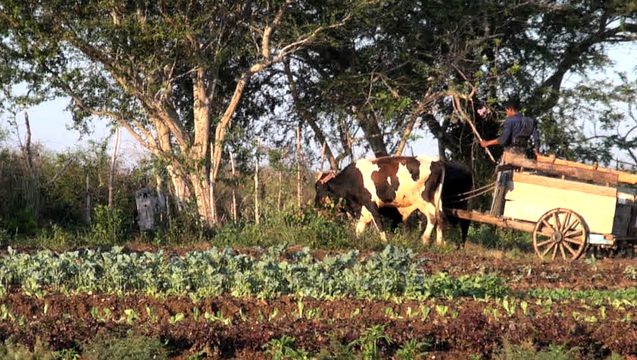Over the past 25 years, Cuba has built a largely organic farming system out of necessity. When the Soviet Union collapsed, Cuba lost its main supplier of fertilizers and pesticides. What will the changing U.S.-Cuban relationship mean for Cuban farmers? We air a video report from a farm outside Havana produced by Democracy Now!
TRANSCRIPT
This is a rush transcript. Copy may not be in its final form.
AMY GOODMAN: We continue our coverage of Cuba with Catherine Murphy, a filmmaker who lived and studied in Cuba in the ’90s. Her film titled Maestra explores the stories of the youngest women teachers in the 1961 national literacy campaign in Cuba. Catherine Murphy joins us from Miami.
We want to welcome you to Democracy Now! We’re going to be playing another piece of Karen Ranucci’s looking at organic agriculture, very interesting in Cuba, Catherine. But it also goes to the issue of private enterprise, not just small mom-and-pop shops, you know, restaurants, bed-and-breakfasts, but what about the multinationals? How are they preparing to enter Cuba, Catherine?
CATHERINE MURPHY: Well, yes, I think there is a lot of desire on behalf of the multinationals to enter Cuba for the untapped markets, with a large buyer, even though there are only—well, there are 11 million people on the island, but there are central buyers for key food and agriculture products. So it’s a large market for the corporations. They are hungry to get into those markets. But the Cubans, I think, have both a need for increasing key imports and also a lot of healthy skepticism of not having—not giving the corporations too much space, not losing key industries on the island and not losing control over key sectors of the economy.
Source: Organic Farming Flourishes in Cuba, But Can It Survive Entry of U.S. Agribusiness? | Democracy Now!

